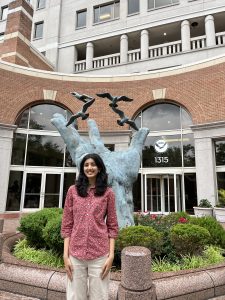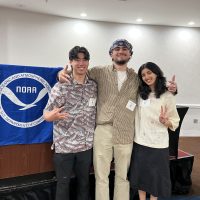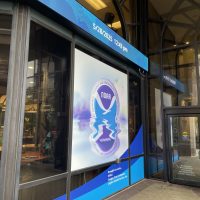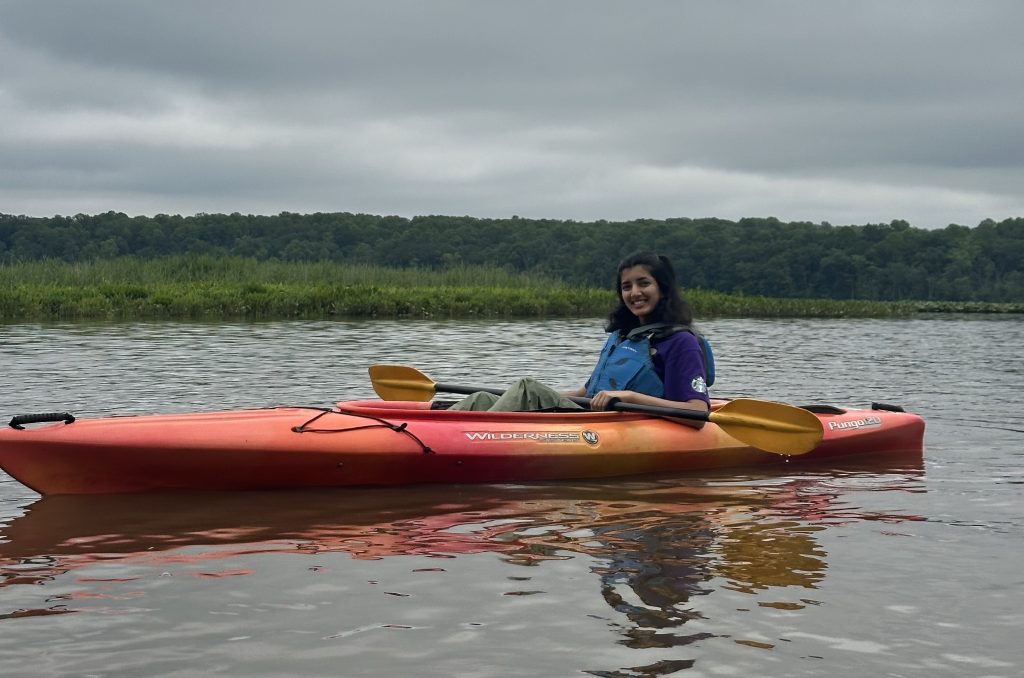Jetting off to DC for NOAA Hollings orientation
In her second year at the University of Washington double majoring in Marine Biology and Molecular, Cellular, and Developmental Biology, Mugdha Chiplunkar recently jetted off to the nation’s capital to undertake her orientation as a 2025-2027 NOAA Ernest F. Hollings Scholar. Awarded to roughly 120 students from across the US each year, the prestigious scholarship provides undergraduates with awards that include academic assistance for two years of full-time study and a 10-week, full-time paid internship at a NOAA facility during the summer.

The two-year program kicks off with orientation at the NOAA headquarters based in Silver Springs, Maryland, where scholars get to meet each other, explore the different types of research conducted by NOAA, and participate in a field trip.
“Luckily, I met four other Hollings scholars on my flight from Seattle to DC—three from Western Washington University and one from Edmonds College. Once we touched down, I also caught up with the two other College of the Environment NOAA Hollings Scholars—Dash Dicksion from the School of Aquatic and Fishery Sciences (SAFS) and Lorenzo McCleese, a double major in Environmental Science and Terrestrial Resource Management (ESRM) and Informatics: Data Science”, Mugdha shared.
There are six NOAA line offices, each with a different remit related to fulfilling NOAA’s mission of understanding and predicting changes in climate, weather, ocean and coasts; sharing that knowledge with others; and conserving and managing coastal and marine ecosystems and resources. The six line offices are:
- National Environmental Satellite, Data, and Information Service
- National Marine Fisheries Service
- National Ocean Service
- National Weather Service
- Office of Marine & Aviation Operations
- Office of Oceanic & Atmospheric Research

“One of the key parts of orientation is learning more about the different types of research that is conducted by NOAA, and how NOAA helps make communities safer and healthier on the ground,” Mugdha said. “It was really inspiring to hear from different NOAA staff about their work, and it helped me understand how the Hollings program isn’t just beneficial to us as students, but also to NOAA as it recruits the next generation of scientists, educators, and others that conduct its mission.”
In their second year of the program, Hollings Scholars spend a 10-week summer period interning with a branch of NOAA, located anywhere in the US. “We’re encouraged to reach out to any specific labs or mentors we might be interested in working with, all included on an internship database that we can pick from,” Mugdha said. “I’m most excited by the prospect of exploring a new place and ecosystem through the internship, so I’m looking into offices such as the Atlantic Oceanographic and Meteorological Laboratory (AOML) or the Southeast Fisheries Science Center in Florida.”
For many Hollings Scholars, the program is a chance to not only gain valuable work experience for their future careers, but also to expand their horizons, try new things, and visit parts of the country they wouldn’t have had the opportunity to go to otherwise. “I want to connect with people from different professional backgrounds to expand my own horizons for growth—while also exploring a new part of the US—so this is an exciting prospect for next year,” Mugdha said.
In the meantime, this upcoming summer will see Mugdha staying in our local Seattle area to continue her work with the NOAA Pacific Marine Environmental Laboratory’s (PMEL) Ocean Molecular Ecology (OME) program as a summer intern. Mugdha has worked with this program—external to her NOAA Hollings Scholarship—as an Undergraduate Research Assistant since October 2024.

Orientation was not all work, work, work however! For Mugdha, her favorite part of the trip was meeting other scholars. “It was amazing to hear about everyone’s unique passions, and it made me realize that although all of us had different backgrounds and interests, we shared a common love for community service and supporting NOAA’s mission,” she said. It was also a chance to reconnect with friends gained through the Hollings Preparation Program, an internship which acts as a precursor to the NOAA Hollings Scholarship for many undergraduates.
The orientation finished with a fieldtrip, where Mugdha joined the group touring the Jug Bay Wetlands Sanctuary via kayak. “We learned about local wildlife and efforts to grow wild rice in the sanctuary, and my favorite part was observing and listening to the many different types of birds that live in the sanctuary, including ospreys and herons, and seeing turtles sunbathing along the side of the river!” Mugdha shared.

“I’m really excited to stay in touch with the other Hollings Scholars until we reunite in Silver Spring next summer for our final internship symposium, and I’m grateful to the entire NOAA team behind Hollings for rooting for my success in the program!” she said. Keep an eye out next year to learn where Mugdha’s 2026 summer internship takes her!